In one weekend, in two countries, at least 14,000 people have died as a result of natural disasters.
Last week's earthquake in the Atlas Mountains was Morocco’s strongest-ever quake and its deadliest in over 60 years.
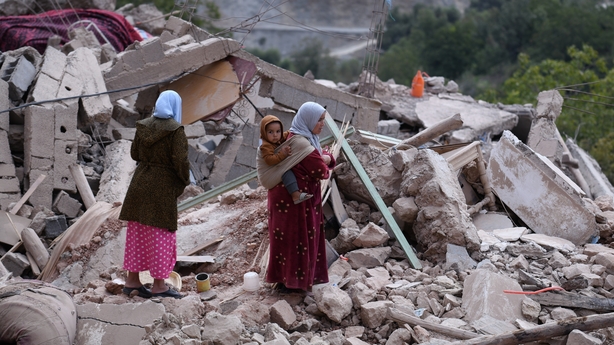
Almost 3,000 people lost their lives and countless more have lost their livelihoods.
Early estimates from the United Nations were that 300,000 people were affected by the 6.8 magnitude quake.
Then on Sunday night, hurricane-strength Storm Daniel made landfall in Libya, with torrential rain engorging rivers and bursting neglected dams, resulting in the destruction of around a quarter of the city of Derna.
Entire families were swept away as they slept in their beds.
Bodies are constantly washing ashore, swelling the number of casualties, while dashing the hopes of survivors.
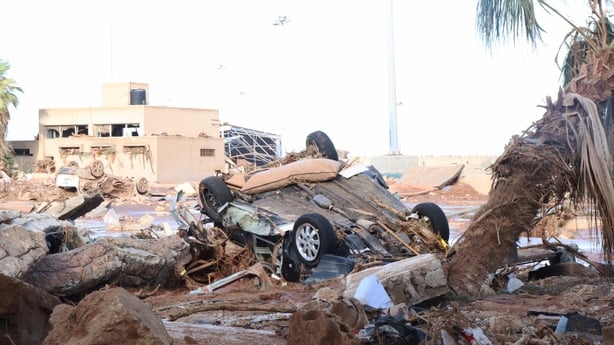
Yesterday, the Libyan Red Crescent said 11,300 people had died, with a similar number missing.
Mayor of Derna Abdulmenam Al-Ghaith believes the death toll could reach 20,000 people.
Adding to the catastrophe, the International Organisation for Migration said that 38,640 individuals were displaced in the most affected areas in northeastern Libya due to the storm.
Rebuilding after both disasters will take time and billions of euros. In the meantime, where will the people go?
Read more:
Quake exposes risk in Morocco villages' isolation
Race to help Libya flood survivors as thousands remain missing
This is not to suggest that Libyans and Moroccans won’t try to relocate, or rebuild or simply start again, at home.
But natural disasters, including those caused by climate change, do force people to leave their homes and the numbers are rising.
Projections vary significantly from 200 million people forced to flee by 2050, as estimated by the International Organisation of Migration to over one billion people.
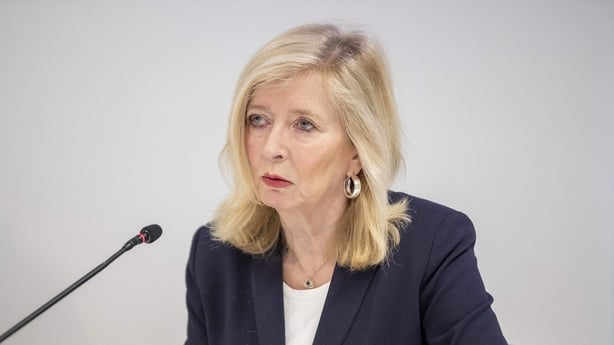
The Institute for Economics and Peace estimates that if natural disasters occur at the same rate seen in the last few decades, 1.2 billion people could be displaced globally by 2050.
Its inaugural Ecological Threat Register for 2020 examines the capacity of countries to withstand natural disasters including adverse weather events caused by climate change.
It said Ireland is one of just 16 countries facing the lowest level of threat, meaning there are fewer ecological risks coupled with the resilience to deal with them.
The Institute said regions with high resilience, such as Europe and North America, will not be immune from the wider impacts of ecological threats, like mass migration.
Tunisia overtakes Libya as the primary departure point.
In recent months, Tunisia has overtaken Libya as the primary departure point in North Africa for people seeking protection in Europe.
On Wednesday, the EU Ombudsman asked Brussels to explain how it plans to ensure that its recent pact with Tunisia to curb migration will respect human rights.
The Ombudsman Emily O'Reilly is an independent watchdog employed to handle complaints about the work of EU institutions and agencies and to investigate alleged administrative failures.
The EU and Tunisia signed an agreement in July as part of efforts to combat "irregular migration," while providing funding to the country to help manage its borders.
At the time, European Commission president Ursula von der Leyen, Italy's Prime Minister Giorgia Meloni and the Netherlands' Mark Rutte hailed the deal as a way to fight "networks of smugglers and traffickers".
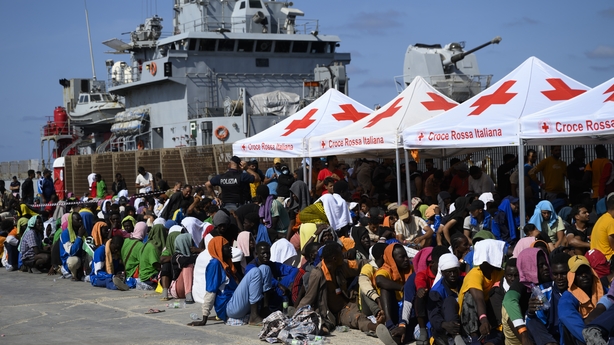
Under the Memorandum of Understanding, the EU will provide €105 million for training and technical support for Tunisian border management, for combatting anti-smuggling operations and for reinforcing control of borders.
Ms O’Reilly asked if a human rights impact assessment had been made before signing the memorandum.
Writing to Ms von der Leyen, Ms O’Reilly said: "The longstanding view of the European Ombudsman is that good administration encompasses observance of and respect for fundamental rights. Where fundamental rights are not respected, there cannot be good administration."
She has asked for a response by mid-December.
The memorandum has been criticised by human rights organisations and some MEPs.
The International Rescue Committee said the agreement risked driving migrants and refugees into even more dangerous routes.
IRC Senior Vice President in Europe Harlem Desir said: "The latest agreement with Tunisia entails great risk of abuse, violence, and exploitation, driving migrants and refugees onto even more dangerous routes in search of safety.
"The protection of vulnerable people must not be sacrificed in the name of deterrence. This has been shown both ineffective and contrary to the most basic humanitarian principles."
Ms O'Reilly noted that she had raised these concerns when Brussels signed a similar pact with Turkey and warned the EU regulations stipulate that any funding provided to partner countries must not be spent in ways that breach migrants' human rights.
On the island of Lampedusa, off the south coast of Italy, the migrant crisis can be seen in full effect.
Yesterday, Mayor Filippo Mannino said that 7,000 people had arrived on the island in just two days. Lampedusa normally has a population of 6,000.
Lampedusa sits in the Mediterranean between Tunisia, Malta and the larger Italian island of Sicily and is a first port of call for many people trying to reach Europe.
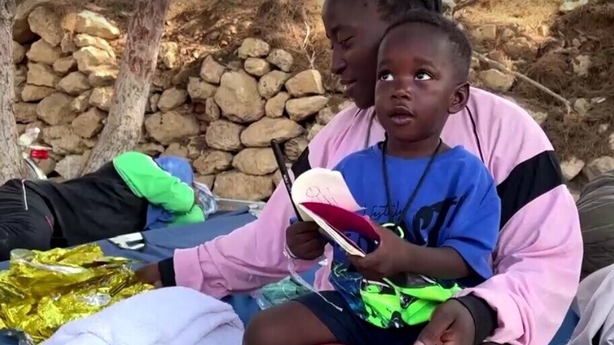
So far this year, around 118,500 people have landed on Italian shores from North Africa, causing problems for Prime Minister Giorgia Meloni’s right-wing government after it promised tighter controls.
Deputy Prime Minister Matteo Salvini decried a lack of support from fellow EU members, calling the arrivals "an act of war" and "the death of Europe".
While migration commissioner Ylva Johansson said on social media platform X: "We are seeing a really challenging situation in Lampedusa. This is a European matter that needs a European response."
On Lampedusa, conditions are difficult. Claudine Nsoe, a 29-year-old mother from Cameroon arrived last Tuesday with her 18-month-old son, Prince, having set off from Libya.
The island’s reception centre has a capacity for 400 people but has been crammed with as many as 7,000 in recent days.
Claudine said the living conditions "are not easy, we sleep in the open air, in the sun, and in the cold. We want to leave. Wherever that might be, we must go".







